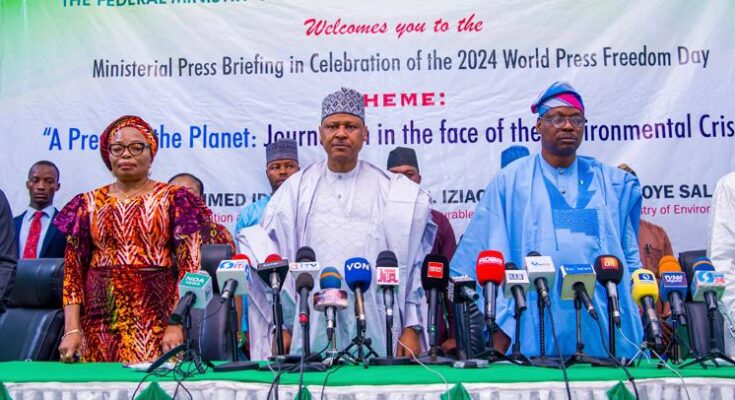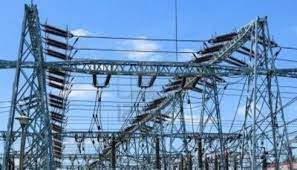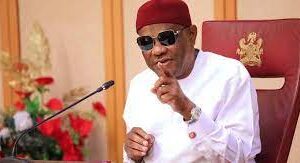…Educate, sensitise Nigerians on harmful environmental practices – Minister
…44 environmental journalists killed in last 15 years globally – UNESCO
The Minister of Information and National Orientation, Mohammed Idris, has affirmed that not a single Nigerian journalist had been hounded or incarcerated under the President Bola Ahmed Tinubu administration for practising responsible journalism, saying that “the media is largely free in Nigeria.”
Idris gave the assurance Friday in Abuja while fielding questions at a press briefing organised by the Ministry of Information and National Orientation in partnership with the Federal Ministry of Environment and Ecological Management, and the United Nations Educational, Scientific and Cultural Organisation (UNESCO), to commemorate this year’s World Press Freedom Day.
“I have not seen somebody in the life of this administration, for example, who has been put in jail or who has gone into exile as a result of press freedom.
“We knew what had happened in this country in the past. Some decades ago, we knew that you had to leave this country to be able to report. I can tell you that the press in Nigeria is largely free, but that freedom will further be consolidated if honesty and transparency are upheld in the manner that we report,” he said.
The minister said the president “recognises the importance of responsible media coverage in enlightening, informing, and educating Nigerians and the world,” adding that “through credible and timely information, everyone can be well-informed, and the media can serve as a valuable tool for fostering transparency and accountability.”
“As a ministry and the government, we have provided the most unfettered access to journalists and provided the enabling environment that has continued to encourage the Nigerian media to grow in leaps and bounds.”
He reminded the media that spreading falsehoods and misinformation was “irresponsible journalism and cannot be equated with press freedom.”
He said as President Tinubu “strives to position Nigeria as an attractive destination for Foreign Direct Investment,” the media must present a positive and accurate portrayal of the country to the international community.
The theme
Speaking on this year’s theme of World Press Freedom Day, “A Press for the Planet: Journalism in the face of Environmental Crisis,” Idris said this year’s theme resonated deeply with the ministry’s vision and President Tinubu’s priority areas which prioritise restoring trust, reorienting national values, and creating an enabling environment for the media.
“It underscores the crucial role of journalism in addressing the environmental crisis. I am pleased to state that the present administration of President Bola Ahmed Tinubu recognises the importance of responsible media coverage in enlightening, informing, and educating Nigerians and the world. Through credible and timely information, everyone can be well-informed and the media can serve as a valuable tool for fostering transparency and accountability.”
Idris, while acknowledging the challenges faced by journalists in their line of duty, said the federal government would continue to provide an enabling environment for journalists to carry out their responsibilities.
“We also acknowledge the challenges that journalists face in carrying out their vital work. As environmental defenders, journalists often confront threats, harassment, and violence for their courageous efforts to expose environmental crimes and protect our natural world. As we celebrate World Press Freedom Day, we must re-affirm our unwavering commitment to protecting the rights of journalists and ensuring their safety and security.
“It is our conviction that press freedom is not just a fundamental human right, it is also essential for environmental sustainability. Without a free and independent press, we cannot hope to address the complex environmental challenges we face.
“Disinformation and misinformation undermine public understanding of environmental issues and hinder our ability to take meaningful action. Therefore, we must staunchly defend press freedom and support the work of journalists who are dedicated to reporting the truth. However, this Day also throws open the flip side of press freedom which is responsible journalism. It is a call for the press to uphold the tenets of journalism by being factual, truthful and responsible in their reporting. The need to be nationalistic and patriotic cannot be over-emphasised. As journalists and members of the Fourth Estate of the Realm, we must see ourselves as strategic partners in the development of our nation and nothing short of this will suffice.”
Environment minister’s remarks
In his remarks, the Minister of State for Environment and Ecological Management, Dr. Iziaq Adekunle Salako, charged stakeholders to re-affirm their commitment to the principles of a free and independent press.
This, he said, would promote “transparency, accountability which is pivotal to advancing environmental agendas.”
He said, “As we commemorate World Press Freedom Day, I call on us to re-affirm our commitment to the principles of a free and independent press, a sine qua non for effective climate journalism.
“Press freedom is indispensable to promote transparency, accountability and social justice, critical to communicating the threat posed by the climate crisis and making informed decisions to be more environmentally responsible. You as journalists have a critical role to play in driving environmental policy formulation and implementation and also in shaping public perception about the crisis.
“Let us, therefore, work together, across sectors and borders, to harness the power of the media in addressing the environmental crisis and advancing sustainable development.
“Journalism plays a pivotal role in advancing environmental agendas, serving as a catalyst for change, a watchdog for accountability, and a voice for the voiceless. Through investigative reporting, insightful analysis, and compelling storytelling, journalists shed light on the pressing issues of the environmental crisis facing our nation and inspire mass action towards positive change. Without such mass actions, we will be unable to win the fight against the environmental challenges confronting our country.”
The minister urged the media to continue to educate and sensitise Nigerians on harmful environmental practices in order to save the planet from collapse.
“The press and journalists constitute the framework for informing, educating, stimulating discussion, mobilising and setting the agenda for the public who are the employers of the government. A press for the planet at this point in time is therefore most needed if we are to get the public behind global and national agenda like net zero, energy transition, biodiversity beyond national jurisdiction, 30 by 30, ending plastic pollution and such other pathways set forth to address the environmental crisis
“Ignorance, lack of awareness and appropriate knowledge about the climate crisis is still rampant in our society. Let me therefore in closing call upon you our dear friends in the media for more support in our drive for environmental advocacy and citizenship so that all creatures on earth thrive in harmony with the planet.
“We know that our behaviour and lifestyles are driving the environmental crisis. We also know that changing behaviour and lifestyle is not easy to achieve. Therefore, we must remain persistent in our advocacy, our awareness creation, our sensitisation and educating the public.
“The doomsday clock is ticking, bringing humanity closer and closer to a ‘triple whammy’ which may ultimately seal all our fate, but if we work together, if the freedom of press is promoted, if our journalists comes fully on board deploying their reports as climate actions we will save our cherished planet earth for ourselves and generations to come.”
He said some of the ministry’s efforts to combat the environmental crisis were “Nigeria’s Nationally Determined Contributions (NDC), Long-Term Low Emission Development Strategy, commitment to achieving net zero emissions and framework for biodiversity conservation.”
“This is in tune with the inclusivity agenda of President Bola Ahmed Tinubu, which is a key pillar in the eight-point presidential priority.
“These commitments outline our path towards sustainability, emphasising the need for collaborative action, innovation, and accountability. They represent the unwavering dedication of Nigeria to play her part in mitigating climate change and safeguarding the health of our planet for future generations.
“In this regard, the Federal Ministry of Environment is promoting nature based solutions through tree planting, mangrove restoration, urban greening and restoring wetlands. We are promoting the adoption of more environmentally friendly energy sources including clean cook stoves, working hard to end gas-flaring and plastic pollution, remediating oil polluted communities, expanding our protected areas, addressing desertification, drought, flooding and erosion.
“In doing this, we are fully in tune with the inclusivity agenda of President Bola Ahmed Tinubu which is a key pillar in the eight-point presidential priority. Recognising the interconnectedness of environmental, social, and economic issues, we understand that sustainable development cannot be achieved without addressing the needs of all members of society. By promoting inclusivity, we ensure that no one is left behind in our journey towards a greener, more prosperous Nigeria.”
UNESCO speaks
Also speaking, the head of UNESCO Office Abuja, Mr. Abdourahamane Diallo, who read a message from the director-general of UNESCO, Ms. Audrey Azoulay, said the ecosystem was on the brink of collapse and “no effective climate action is possible without access to free and reliable scientific information.”
“The planet is on the brink of a climatic precipice: 2023 was the hottest year on record, with an average global surface temperature 1.45°C higher than in the pre-industrial era. Other alarming records were also broken for ocean surface temperatures, sea level rise and glacier retreat,” he said.
He also called for the protection of journalists, saying 44 environmental journalists had been killed in the last 15 years in line of duty.
“As humanity faces up to this existential peril, we must remember, on this World Day, that the climate challenge is also a journalistic and informational challenge. No effective climate action is possible without access to free and reliable scientific information.
“That is why this year’s theme highlights the essential link between protecting freedom of expression – a global public good – and preserving our planet.
“But this World Day is also a call to action to protect journalism and free, pluralistic information; a call to make the major social networks more accountable, so that they can step up their moderation and regulation measures to counter disinformation and conspiracy around climate change, in line with the Guidelines for the Governance of Digital Platforms published by UNESCO in November 2023.
“It’s also a call to equip all citizens with the critical thinking skills needed to confront disinformation; a call also to protect journalists and media professionals, artists and scientists, who are all too often the victims of harassment, violence and censorship. A UNESCO study published this month shows that 70% of environmental reporters have been the victims of attacks, threats or pressure because of their work, and 44 environmental journalists have been killed in the last 15 years.”




